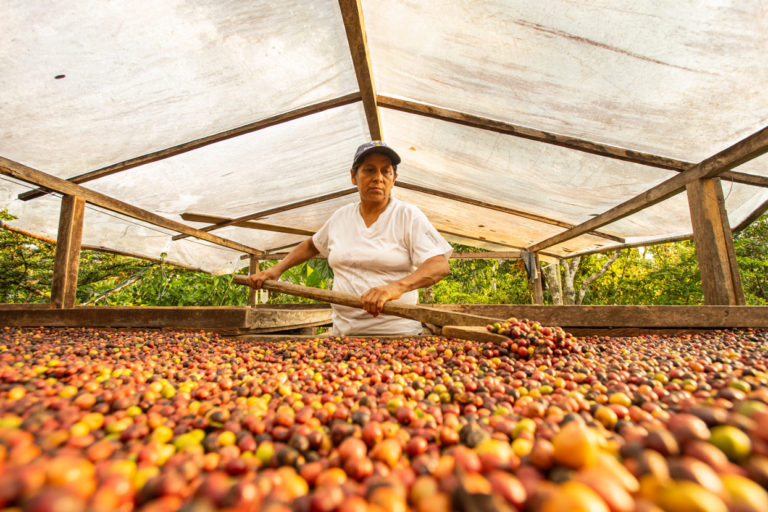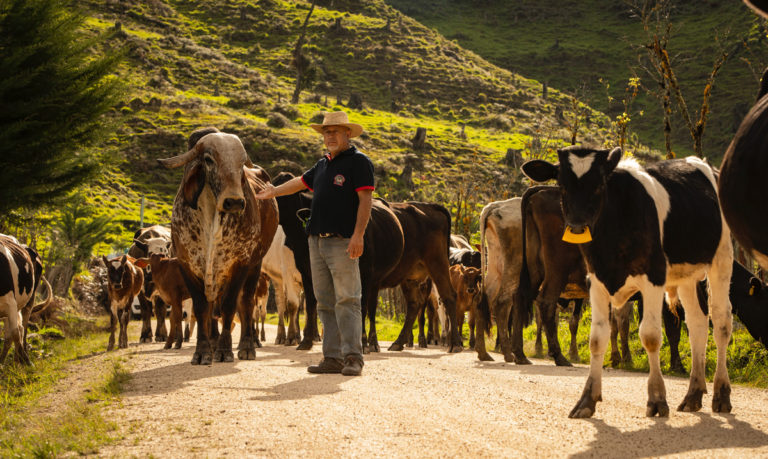Faced with the threat of climate change, many governments and private entities have committed to promoting conservation and reducing deforestation. Progress is significant in some cases, but in others, the commitments do not meet the needs. That is why, in 2019, the United Nations Development Programme (UNDP), through the Green Commodities Programme (GCP), implemented the “From Commitment to Action” (FC2A) initiative with pilot cases in Ecuador, Peru and Colombia.
“These countries, adhering to the New York Declaration on Forests (NYDF), needed tools to help them move towards their commitments,” UNDP Global Director of Food and Agricultural Commodity Systems Andrew Bovarnick commented, adding that after a collaborative research process in 2020 a “picture emerged of how complex it is to create a situation with all the regulations, plans, incentives and capacities in place for production practices.”
UNDP’s FC2A global initiative aimed to identify the systemic barriers and challenges that hinder the fulfillment of agreements to promote conservation and reduction of deforestation and thereby move from commitment to action. Through an approach that includes actors from the public and private sectors, NGOs, communities and academia, it seeks to help countries reduce deforestation derived from agro-productive systems in the main forest ecoregions.
In the case of Ecuador, the work focused on the Amazon ecoregion, especially with products such as coffee, cocoa, oil palm and livestock that are the main causes of the expansion of the agricultural frontier and, consequently, the deforestation of the Amazon forests.
After the first stage of review and analysis, the report “From Commitment to Action: Supporting Deforestation-Free Commodity Supply Chains in the Amazon” was prepared. The document provides an overview of the landscape of deforestation commitments and their progress in implementation, identifying national roadmaps where systemic barriers still exist to efforts to accelerate a reduction in deforestation in the Amazon region.
“As we look for concrete pathways and renewed efforts for the SDGs, we welcome the FC2A report, which proposes country-specific roadmaps and recommendations,” said Global Nature for Development Program Manager, UNDP Platform Secretariat and NYDF, Jamison Ervin.
To prepare the national roadmap, criteria were gathered from government agencies, including the Ministries of Agriculture and Livestock (MAG), Environment and Water (MAAE), Production, Foreign Trade, Investment and Fisheries of Ecuador (MCEIP) and the Animal and Plant Health Regulation and Control Agency. Similarly, those criteria of private actors corresponding to the four commodities were incorporated, to identify both the gaps and progress or actions to achieve a sustainable, deforestation-free production, linking regulations, monitoring, inter-institutional coordination, traceability, planning tools and land use.
Overall, FC2A found that good progress has been made in all three countries. However, he warned about the gaps and challenges that must be taken into account from the public and private sectors; as well as recommendations and guides for countries to successfully implement their conservation policies.
In the Ecuadorian case, the report highlighted that the country is leading the way in the jurisdictional certification for sustainable and deforestation-free palm oil; through the Roundtable on Sustainable Palm Oil (RSPO), an achievement reached in 2019 by PROAmazonía, an initiative of MAG and MAAE with UNDP support.
Among the recommendations made in the report are: improving coordination between ministries, territorial agencies and local authorities; updating traceability and certification systems; and training accompanied by planning to show how coffee, cacao, palm and livestock production can be carried out without deforestation.
In addition, an analysis of the international sustainable and deforestation-free market for the four products is proposed, as well as projections for demand in the coming years, potential markets and buyers, along with the benefits that the producer would obtain in economic terms. To reinforce these actions, the roadmap recommends conducting training on quality management systems, traceability and certification for all actors involved in the process. It also mentions that all organizations involved must comply with organizational, administrative and financial requirements.
These activities are part of the planning of PROAmazonía and its areas of intervention; through the work with the Land Use and Development Plans (PDOT) and Life Plans; field schools with producers and associations; bio-entrepreneurships; conservation and restoration agreements; as well as the implementation of traceability and monitoring systems to insert deforestation-free products in national and international markets.
The roadmaps and research accompanying FC2A will serve as an input to stakeholder processes to identify areas for further investment, and inform the development of new programs and policies, using a broader systems approach. These resources can also help governments with resource mobilization and demonstrate to other stakeholders, especially the private sector, that what they are doing will help create an enabling environment and reduce the risk of deforestation in commodity supply chains.


To review the full report, click here
Photography: PROAmazonía archive images
Author: Martín Pastor – Technician in Social Communication, Writing and Editing
 Español
Español English
English
